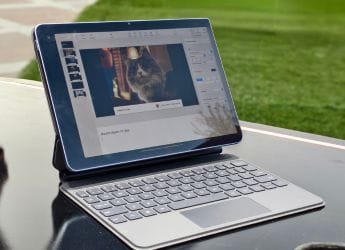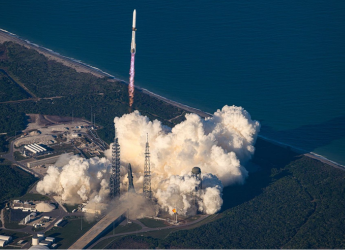- Home
- Science
- Science News
- Caltech Scientists Stretch Quantum Memory Lifetimes 30x in Major Leap
Caltech Scientists Stretch Quantum Memory Lifetimes 30x in Major Leap
Caltech researchers extend quantum memory lifetime 30-fold using sound-based hybrid systems.

Photo Credit: Wikimedia Commons
Caltech’s hybrid system converts qubit data into sound, extending storage 30 times longer.
Quantum computing leaps forward -- A team of Caltech researchers says they've reached a pivotal milestone in quantum computing (quotes). By Semirah Dolan August 28, 2020 Quantum computing has taken one more giant step forward as Caltech researchers have announced that they've developed a technique for quantum states to survive 30 times longer than had previously ever been achieved. Unlike with the bits of classical computers, quantum systems work with qubits, able to be in more than one state simultaneously through a property known as superposition.
This ability means that quantum machines can potentially solve problems that are completely out of reach for classical computers. But keeping hold of these delicate states has remained one of the biggest challenges in scaling up quantum technologies.
Caltech Hybrid System Uses Sound Waves to Extend Quantum Memory 30-Fold
According to a paper published in Nature Physics, the Caltech researchers accomplished this by linking superconducting qubits to mechanical oscillators that store information within sound waves, or phonons. The work, led by graduate students Alkim Bozkurt and Omid Golam as well as assistant professor Mohammad Mirhosseini, shows that quantum data can, in fact, be more efficiently compressed and transported when it is stored temporarily in sound. Acoustic vibrations are a natural match to the very cold environment of superconducting qubits, say the authors.
The device, which is akin to a tiny tuning fork, relies on vibrating plates to harbour electrical signals that possess quantum information. Measurements indicated that the stored information lasted 30 times longer than with current superconducting qubits. Qubits are excellent for doing the processing but not so great at storing it for long periods of time, which is why this hybrid approach is a significant breakthrough, says Mirhosseini. His team emphasised that quantum memory is necessary for so-called calculations “where you access some of the results later in the calculation.”
Unlike electromagnetic waves, mechanical vibrations do not leak out so easily into space — so they lose less of their energy — and they can therefore be stored for longer. The researchers believe that due to the small size of the oscillators, it should be possible to fit several hundred of them on a single chip.
This, in turn, may offer a possible path towards a more powerful and efficient quantum computer.
Paying for the project were the Air Force Office of Scientific Research and the National Science Foundation, and it was co-written by Yue Yu and Hao Tian. Quantum computing should be more interactive, says new AIMR research.
Get your daily dose of tech news, reviews, and insights, in under 80 characters on Gadgets 360 Turbo. Connect with fellow tech lovers on our Forum. Follow us on X, Facebook, WhatsApp, Threads and Google News for instant updates. Catch all the action on our YouTube channel.
Related Stories
- Samsung Galaxy Unpacked 2026
- iPhone 17 Pro Max
- ChatGPT
- iOS 26
- Laptop Under 50000
- Smartwatch Under 10000
- Apple Vision Pro
- Oneplus 12
- OnePlus Nord CE 3 Lite 5G
- iPhone 13
- Xiaomi 14 Pro
- Oppo Find N3
- Tecno Spark Go (2023)
- Realme V30
- Best Phones Under 25000
- Samsung Galaxy S24 Series
- Cryptocurrency
- iQoo 12
- Samsung Galaxy S24 Ultra
- Giottus
- Samsung Galaxy Z Flip 5
- Apple 'Scary Fast'
- Housefull 5
- GoPro Hero 12 Black Review
- Invincible Season 2
- JioGlass
- HD Ready TV
- Latest Mobile Phones
- Compare Phones
- Leica Leitzphone
- Samsung Galaxy S26+
- Samsung Galaxy S26 Ultra
- Samsung Galaxy S26
- iQOO 15R
- Realme P4 Lite
- Vivo V70
- Vivo V70 Elite
- Asus TUF Gaming A14 (2026)
- Asus ProArt GoPro Edition
- Huawei MatePad Mini
- Infinix Xpad 30E
- Huawei Watch GT Runner 2
- Amazfit Active 3 Premium
- Xiaomi QLED TV X Pro 75
- Haier H5E Series
- Asus ROG Ally
- Nintendo Switch Lite
- Haier 1.6 Ton 5 Star Inverter Split AC (HSU19G-MZAID5BN-INV)
- Haier 1.6 Ton 5 Star Inverter Split AC (HSU19G-MZAIM5BN-INV)

















